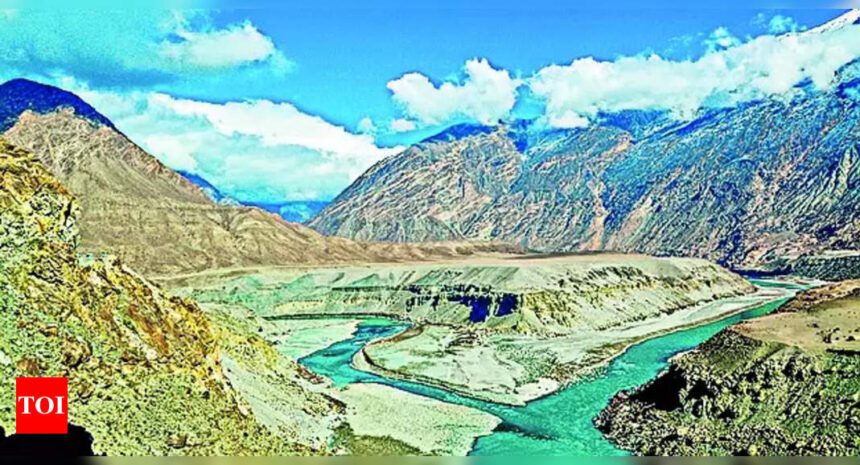NEW DELHI: On Tuesday, India expressed its approval of the ruling made by the neutral expert appointed by the World Bank, which stated that the disputes between India and Pakistan concerning the Kishenganga and Ratle hydroelectric power projects in Jammu and Kashmir fall within his jurisdiction as per the Indus Waters Treaty.
The government views this as a confirmation of its position and interpretation of the treaty, which does not acknowledge or engage in the parallel and “illegally constituted” court of arbitration proceedings initiated at the request of Pakistan.
In an official statement regarding the neutral expert’s ruling, the government mentioned that it remains in dialogue with Pakistan about potential modifications and reviews of the Indus Waters Treaty (IWT). Last year, India highlighted cross-border terrorism as a reason for seeking a review of the treaty.
“India welcomes the decision rendered by the neutral expert under Paragraph 7 of Annexure F to the Indus Waters Treaty, 1960. This decision substantiates and confirms India’s assertion that all seven questions referred to the neutral expert regarding the Kishenganga and Ratle hydroelectric projects constitute disputes within his jurisdiction as defined by the treaty,” the government stated.
India was displeased that despite the World Bank’s request for both nations to find a mutually acceptable approach to address Pakistan’s concerns regarding the projects, Islamabad unilaterally sought a parallel process. The government reiterated its “consistent and principled” stance that only the neutral expert has the authority under the treaty to resolve these disputes.
“By affirming his own competence, which aligns with India’s perspective, the neutral expert is now set to move to the next (merits) phase of his proceedings. This phase will ultimately lead to a conclusive decision on the merits of each of the seven disputes,” the statement continued.
“Dedicated to maintaining the sanctity and integrity of the treaty, India will continue participating in the neutral expert process to ensure that the disputes are resolved consistently with the treaty’s provisions, which do not permit parallel proceedings on the same issues. Hence, India does not recognize or participate in the unlawfully constituted Court of Arbitration proceedings.”










